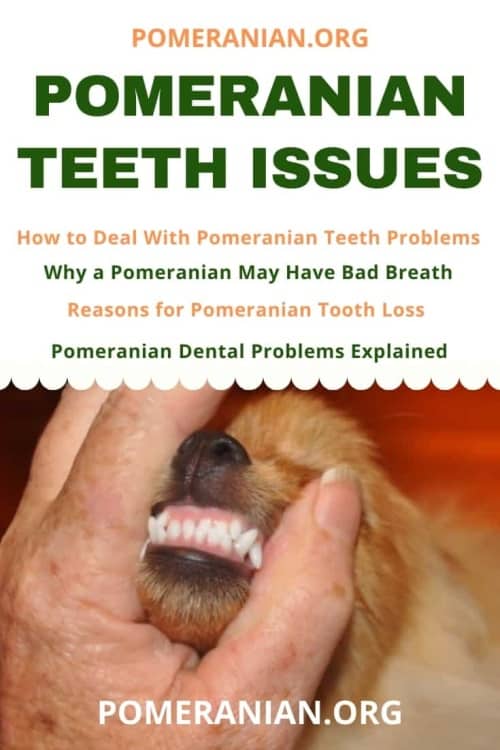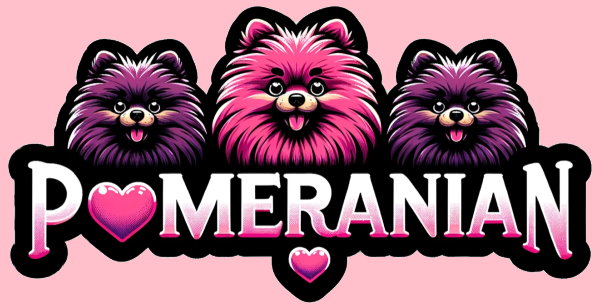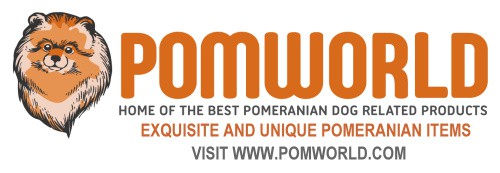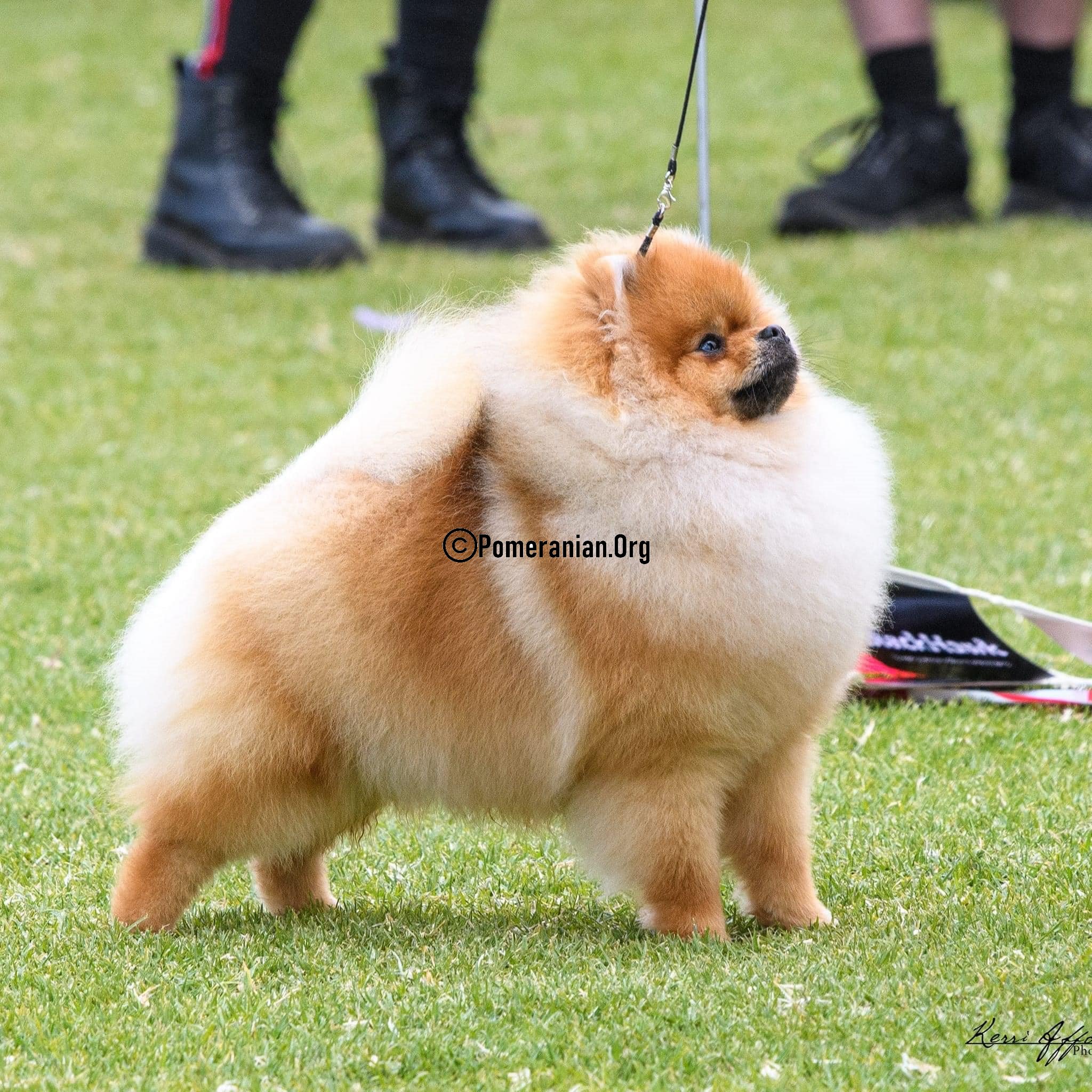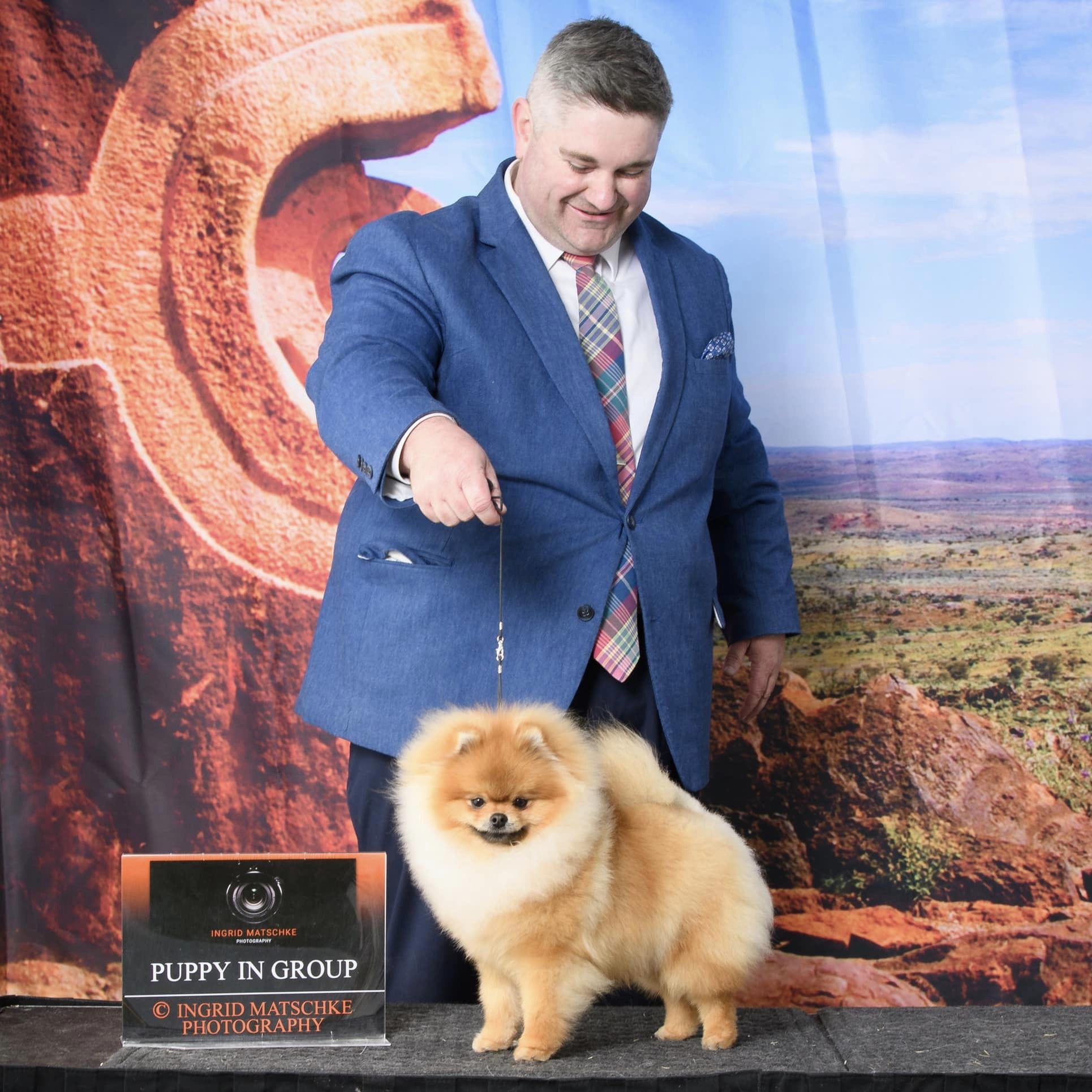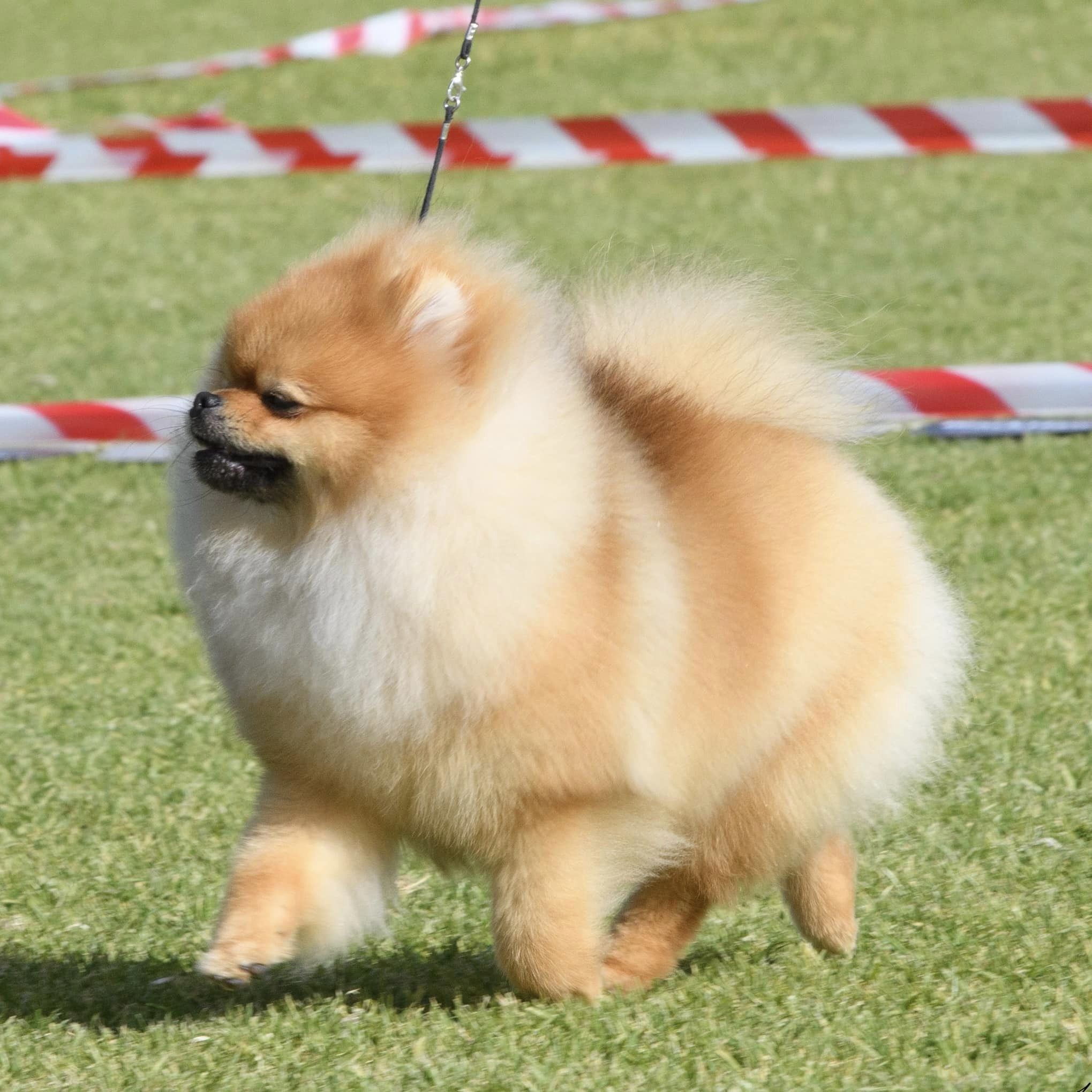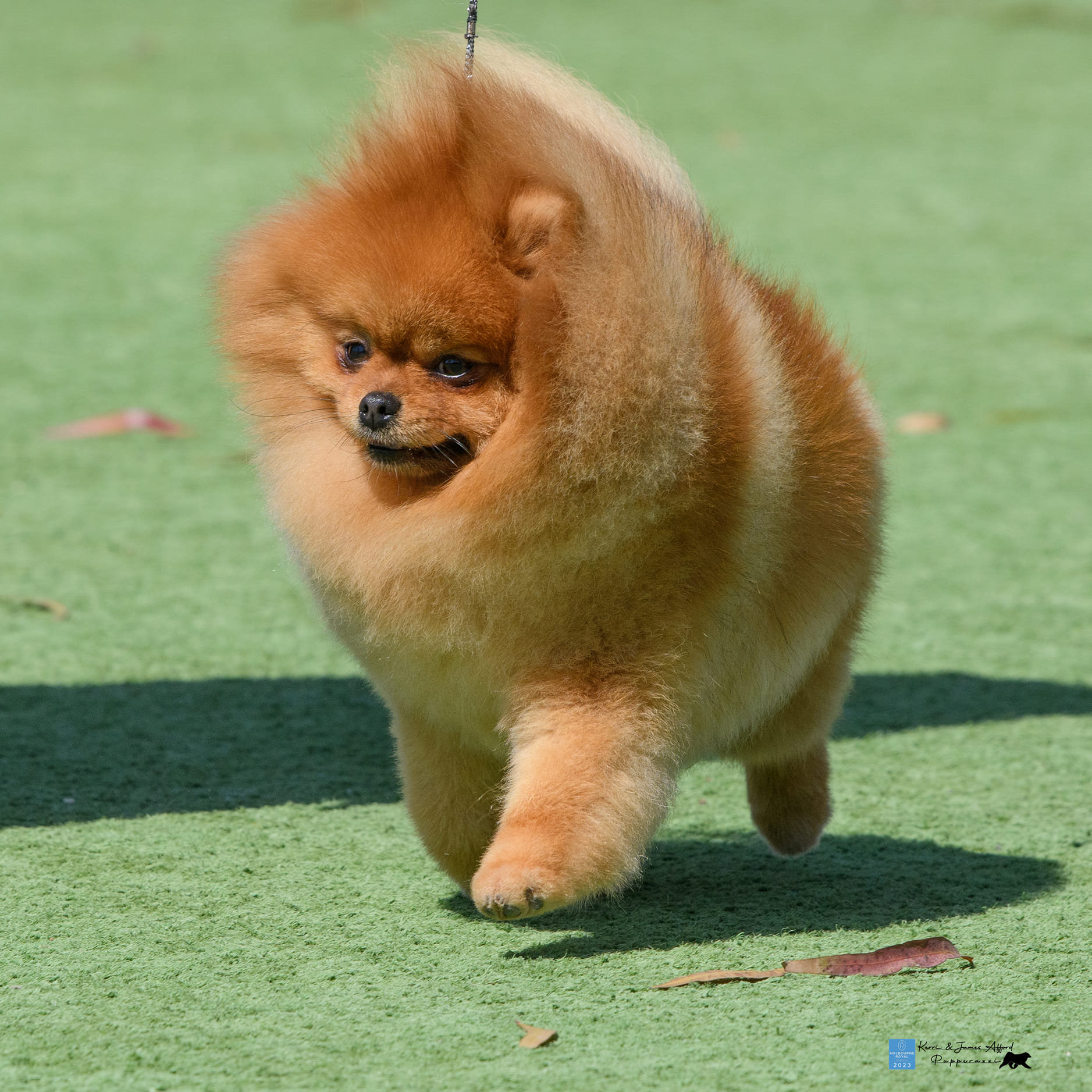Last Updated on 25/04/2024 by Dochlaggie. Post first published on February 23, 2022.
In this article I am going to explain about Pomeranian bad breath including explaining the reasons for Pomeranian teeth issues, Pomeranian teeth problems, Pomeranian tooth loss, why an older Pomeranian often has bad breath and how to prevent a Pomeranian losing teeth.
Have you asked your Vet why my Pomeranian has bad breath?
Everybody knows what Pomeranian bad breath (a.k.a. halitosis) is as soon as we smell it. It’s caused by the build-up of bacteria in your Pomeranian dog’s mouth that has an awful smell to it. If this smell persists, it can indicate that you need to get your dog checked out.
Causes of Pomeranian Bad Breath
- Bacteria associated with plaque.
- Calculus (also known as tartar).
- Decomposing food particles retained in between teeth cavities.
- Persistent mouth bleeding due to coagulation abnormalities.
- Tissue necrosis(tissue death) from oral tumors.
Contrary to common belief, neither lung air nor stomach aroma contributes to halitosis. Periodontal disease is the most common cause of bad breath in Pomeranian and other dogs.
It arises from plaque (biofilm) and tartar buildup. After a few days, plaque mineralizes and produces rough tartar, which accumulates more plaque and ultimately gums inflammation(gingivitis).
After some time, gingivitis progress to periodontal disease(loss of tooth support), the bacterial flora change from good bacteria to bad, destructive bacteria.
Maybe his mouth needs dental attention. Perhaps he has a problem in his kidneys, liver or gastrointestinal tract. Whatever the cause, it’s a problem that should be taken seriously. Bad breath can be a sign of many serious health issues and it is always best to have your Pom vet checked.
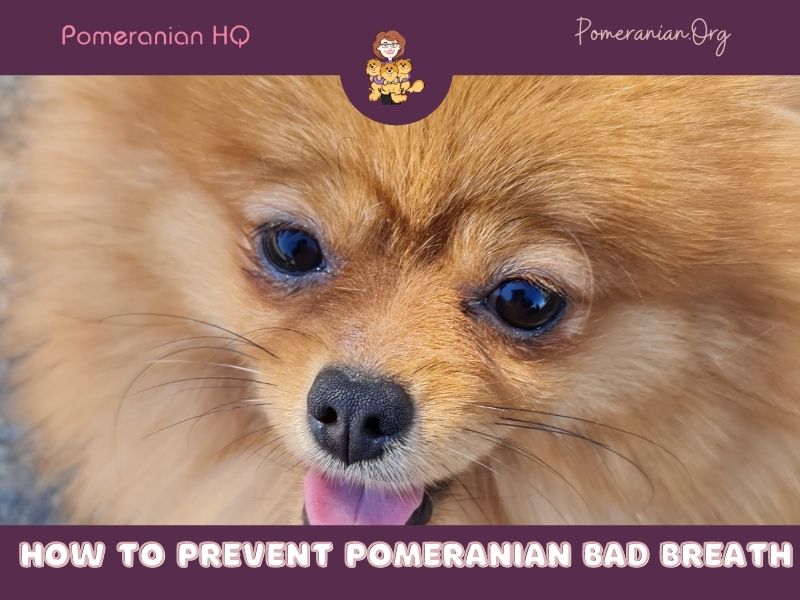
How Can I Stop Pomeranian Bad Breath?
Gum or dental disease is the major cause of canine bad breath. Small dogs such as the Pomeranian are particularly prone to tartar and plaque. However, if the smell persists, he could have more serious problems such as the issues previously mentioned above.
After diagnosis and elimination of cause, daily plaque control is essential in controlling and preventing halitosis. Tooth brushing twice a week or cleaning teeth with gauze two times a day if your poms feel uncomfortable with brushing. Offer chewable items to remove the plaque regularly.
How Can I Find Out What is Causing My Pomeranian’s Bad Breath?
Take your dog to the vet because professional help is needed to correctly diagnose the cause. He may have to do a physical exam and even some lab work. Your Veterinarian will have questions for you with regards to your Pom’s diet, exercise habits, oral hygiene and overall behaviour.
When Should You See The Vet?
If your dog’s breath suddenly has a smell you don’t recognise, see the vet. Here are some examples of problems that need treating urgently: Fruity or sweet may indicate the presence of diabetes, especially if your dog has also been urinating and drinking a lot more than normal.
“Urine breath” may indicate a kidney problem. A very foul smell as well as poor appetite, vomiting or a yellowish tinge to his gums or corneas can be signs of liver problems.
Treatment For Pomeranian’s Bad Breath?
The treatment will depend on what the vet thinks the cause is. If it’s plaque, he may need his teeth professionally cleaned. If it’s a dietary issue, you may have to change some of his food. If it’s an issue with liver, kidneys, lungs or the gastrointestinal region, you’ll need to discuss the specifics with the vet.
First, by cleaning teeth for plaque and tartar removal under general anesthesia. After teeth cleaning, tooth by tooth examination for periodontal support loss.
An intraoral dental x-ray will help complete an oral assessment. Oral care metal ion supplements like zinc can be used because zinc can combine with sulfur.
Zinc and hydrogen sulfide from insoluble zinc sulfide. This linkage inhibits the bad breath produced due to sulfur-producing bacteria. Zinc sulfide also interacts with microbial growth and calcifies microbial deposits that cause halitosis.
How Can I Stop My Pomeranian Getting Bad Breath?
Lots of people assume that dogs have bad breath when they’re at a particular age. This isn’t actually true. You need to be proactive in Pomeranian teeth care and the oral hygiene area of your dog to help prevent problems as he grows older
- Brush your Pomeranian’s teeth daily if possible. Use canine toothpaste because human toothpaste may cause an upset stomach. Give puppies toys to chew on as early as you can. This helps clean their teeth. Make sure toys don’t have pieces that can be choked on or chewed off.
- To keep the Dochlaggie Pomeranians healthy with clean teeth, I practice brushing as often as possible, dentals at my Veterinarian as required, and I also use a dental water additive called Oxyfresh. I firmly believe this product does help prevent plague forming and decreases the frequency of veterinary dental treatments.
- All dog’s require yearly vet checks. Ensure your vet checks and track’s your Pomeranian’s breath and teeth regularly. If your Veterinarian suggests a dental is required ensure you follow this advice.
- Primarily feed your Pomeranian home-cooked food, meat from your butcher, and a small amount of premium dog dry food. Canned dog food, some commercially-prepared “treats,” and poor quality dog food cause unnecessary tooth decay.
- Healthy treats would include homemade doggie treats. Boiled beef heart or liver, cut into small pieces, and put in the freezer with zip lock bags is a tasty, healthy homemade treat. This treat will last frozen for a couple of months. Another safe treat is small cheese pieces. The Healthy Home cooking for your Pomeranian Booklet contains healthy dog food and treats recipes.
- Give your Pom marrow bones regularly. (Beef femur that’s cut into one-inch slices by the butcher). Ensure there aren’t any sharp edges. If you are worried about hygiene, boil the bone quickly to kill germs. You can give your Pomeranian other toys and locally made pig ears, rawhide chews, and hooves.
Dental Water Additive to Help Prevent Pomeranian Bad Breath

Why Do Pomeranians’ Teeth Fall Out?
Pomeranian teeth might fall out for a few reasons:
They outgrow their baby teeth: This type of Pomeranian tooth loss is experienced by every single dog breed, not just Poms. It’s just the length of time they remain in a dog’s mouth that varies so it’s critical that you monitor this length of time.
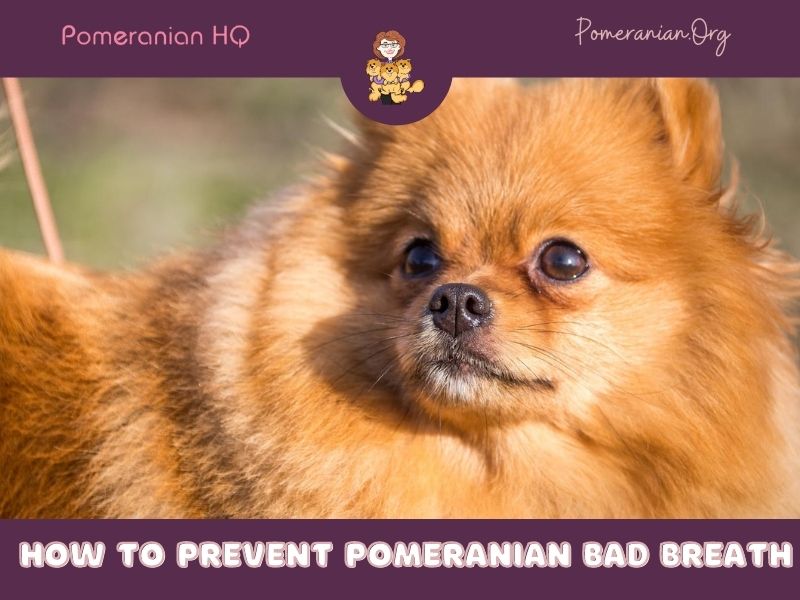
If his baby teeth remain in your Pom’s mouth for longer than they should, infection might set in and then it will necessitate an urgent visit to the vet and this might become expensive for you.
Overcrowding teeth: This may increase the odds of Pomeranian dental problems.
Pomeranians have much smaller mouths than most other dog breeds so this can create a few gum and teeth issues that are quite common.
It can create discomfort and pain due to lack of space between each tooth. It can cause teeth and gum infections, leading to your Pom losing some of his teeth. On a more positive note, such problems can be avoided and, if they do exist, they can easily be treated.
Regular mouth breathing: Unlike most other breeds of dog, Pomeranians have a bad habit of breathing through their mouths. This may not seem to be a problem but it can cause Pomeranian teeth problems such as teeth falling out. Breathing through the mouth causes your Pomeranian to have a dry mouth and this decreases the flow of saliva, preventing the possibility of natural protection and cleaning of his teeth.
Bacterial disease: Pomeranians may experience problems with the health of their gums and teeth. They can be diagnosed with various bacterial infection that may damage their gums and teeth. If they experience Pomeranian dental issues such as these, and don’t receive treatment in time, their teeth could start falling out.
Teeth falling out: Last on the list of Pomeranian teeth issues is that unhealthy teeth can weaken and fall out. The biggest cause is plaque and tartar building up in his mouth, and this will cause gingivitis and other gum diseases. Sadly, such bacterial infections can cause teeth to fall out prematurely, which can be a shock to your Pom’s personality and can become expensive to fix.
Other problems. Not only will teeth and gums be affected, causing teeth damage and loss, but a bacterial infection may spread to other body parts including his heart, liver, kidneys and joints, meaning his lifespan will be shorter than if he was healthy.
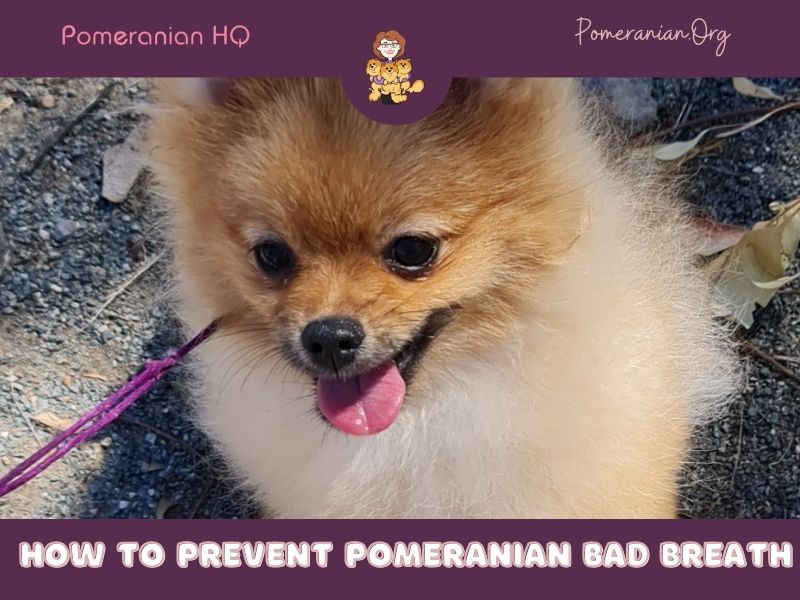
Pomeranian Teeth Issues Summary
Caring for your Pomeranian’s teeth and gums is just as important as looking after his coat and the rest of his body. What goes on is largely invisible so damage can be easily done without you even noticing and, before you know it, your Pomeranian has damaged or lost teeth that can never be replaced. Always seek your vet’s advice if problems don’t settle down.
Get recommendations from your vet for safe oral health products you can use. If your pet’s gut isn’t healthy, his breath may be bad too. In a healthy animal, an intestinal balance is achieved because the pathogenic microorganisms are outnumbered by the beneficial microorganisms.
Diseases, chronic stress and antibiotics can kill the beneficials and let the pathogenics multiply wildly. That’s when foul-smelling waste is created and the bad breath occurs as a result. Apart from good Pomeranian teeth care, your Pomeranian needs probiotic supplements, green supplements (e.g. spirulina) and digestive enzymes to make his breath smell better.
There isn’t a better feeling than watching your enthusiastic Pomeranian watching you and seeing that happy smile on his face and the tail wagging like crazy. He may bark a little but you’re guaranteed to see your Pomeranian’s teeth.
Unfortunately, he can sometimes experience Pomeranian dental problems that may lead to totally avoidable outcomes. Hence the reason for such a common question being asked – why do Pomeranians teeth fall out?

N.B. This article regarding Pomeranian health issues was written in consultation with our resident veterinarian.
Dr. Muqeet Mushtaq
DVM, University of Animal and Veterinary Sciences, 2019
MSc. (Hons.) (Animal Breeding & Genetics), University of Agriculture Faisalabad, 2021
Disclaimer: The Content is not intended to be a substitute for professional veterinarian advice, diagnosis, or treatment. Always seek the advice of your veterinarian with any questions you may have regarding the medical condition of your dog. Never disregard professional advice or delay in seeking it because of something you have read on ANY website.
Copyright Pomeranian.Org. All Rights Reserved.
References and Further Reading:
[1] Denise Leo “The Pomeranian Handbook”.
